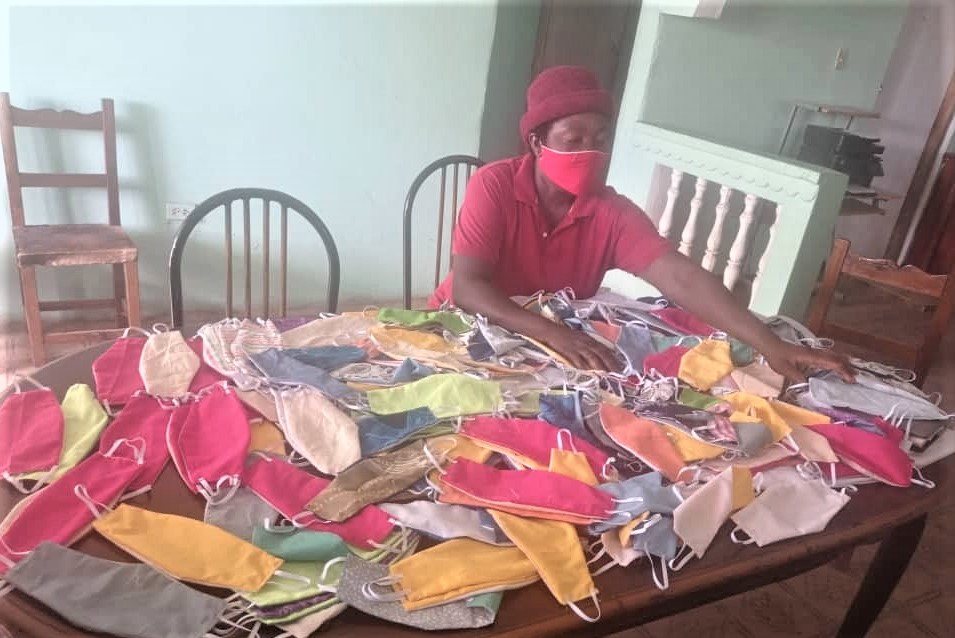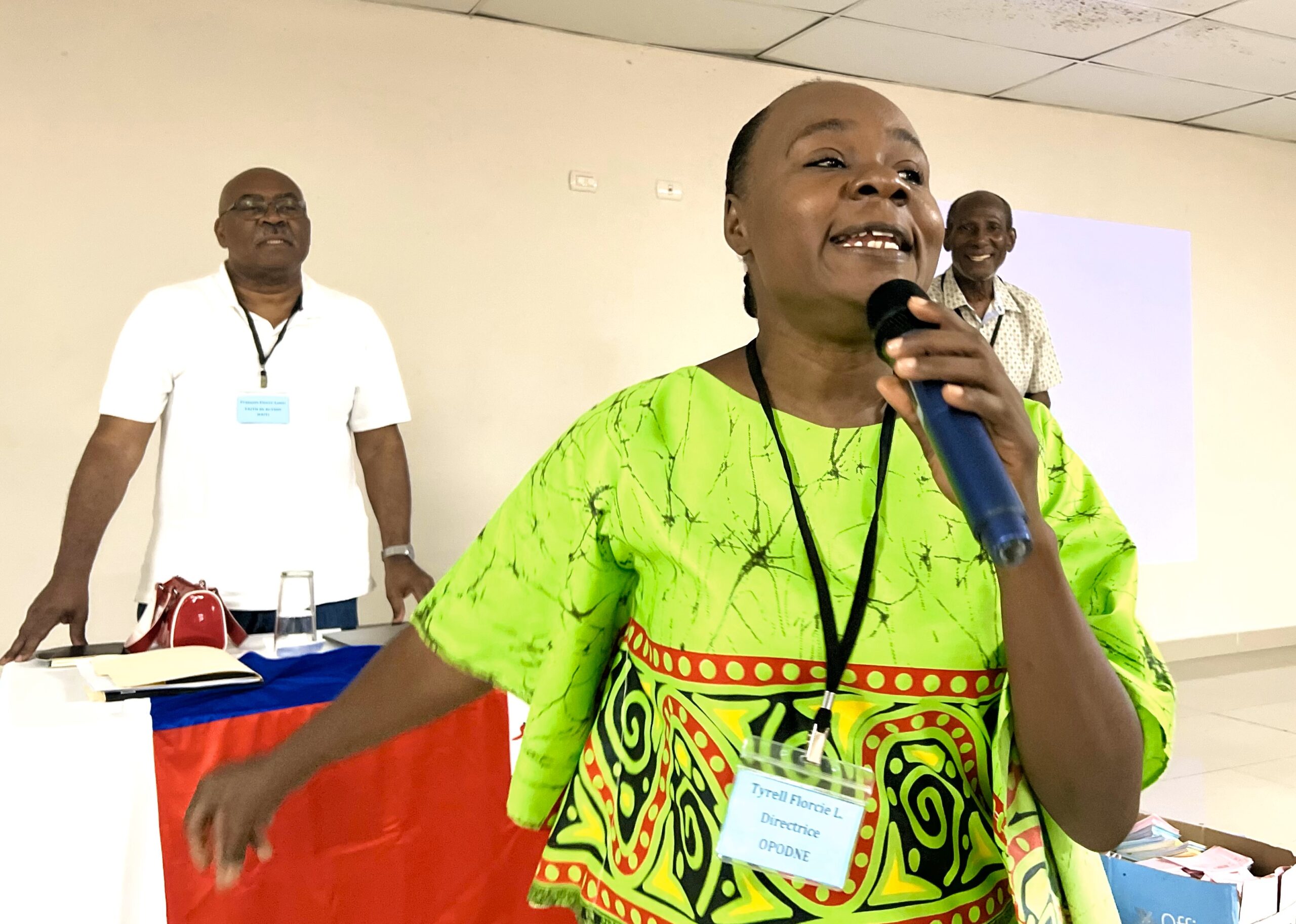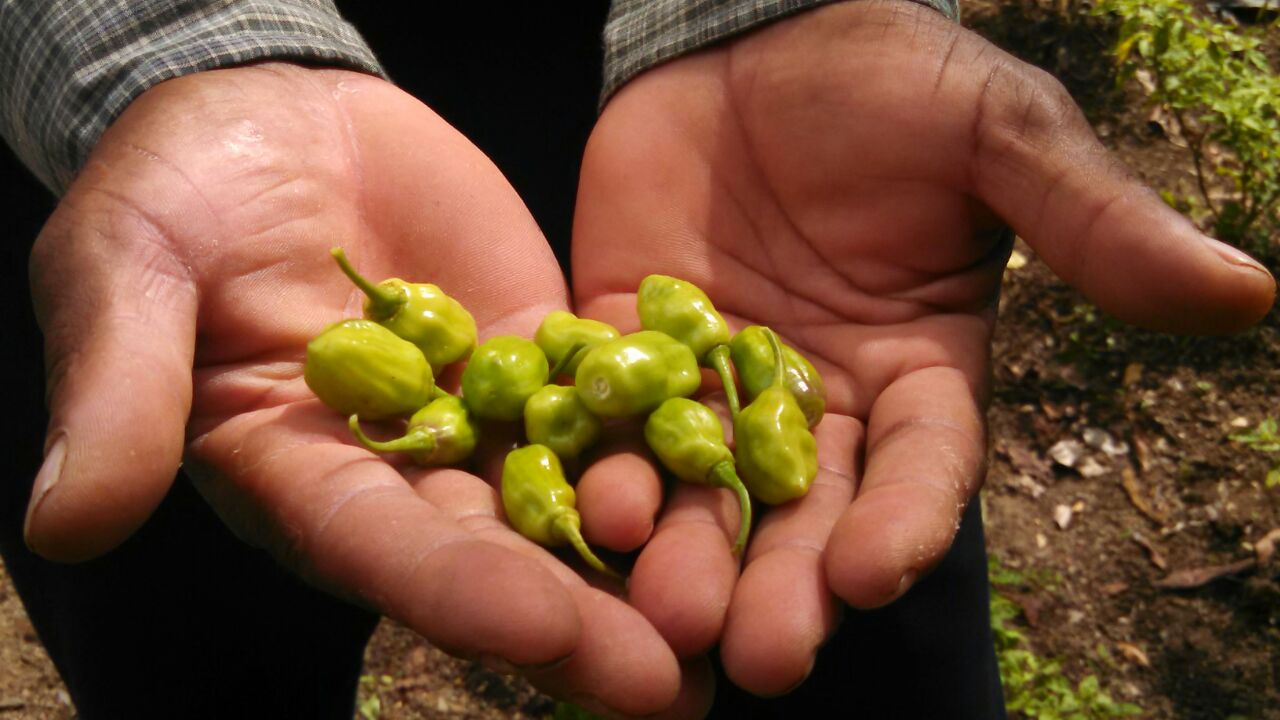“We have not been deterred by the loss of Inter-American Foundation funding for our agricultural campaign.” – Florcie Tyrell, OPODHA Executive Director In North and Northeast Haiti, Florcie Lareche…
Haiti: OPODNE has launched a second campaign to combat rising COVID infections
New variants of the COVID virus are causing a big spike in infections across Haiti. Government is not helping. Hospitals are no longer accepting patients. Doctors and medical staff don’t have needed equipment or protective gear. No vaccines are available anywhere. Despite widespread political protests, gang violence, and rampant inflation, OPODNE leaders are demonstrating the kind of leadership people have the right to expect from their government. Once again, all 13 OPODNE leadership teams are mobilizing their energy to do door-to-door outreach, scheduling education programs on local radio stations, contracting with local tailors to make masks and surveying community health clinics about needs and capacity to deliver treatment and vaccinations. In addition, local leadership teams are organizing clean up campaigns, running micro lending programs, and expanding agricultural cooperatives. OPODNE has a vision for a future where people of the Northeast can feed their families and access basic health care. Read more here.
For more than a year, as the world battled high volumes of COVID-19 infections and deaths, Haiti stood out as an outlier with its relatively few reported cases of coronavirus. Now, as wealthy countries prepare for a post-pandemic world, Haiti seems to be approaching the crisis levels other nations are leaving behind.
In May, the number of coronavirus cases rose 70 per day due to the spread of the more infectious English and Brazilian variants. News of prominent people dying from the disease began to appear, bringing the official number of deaths to 325. The health ministry also counted 15,435 confirmed cases since the start of the pandemic, although the lack of access to testing means this actual number of cases and deaths is likely much higher. To exacerbate matters, Haiti only has about 200 COVID-19 beds for the country’s 11.5 million people. Hospitals are filled and are turning people away.
While Haiti is closer to receiving vaccines through the COVID-19 Vaccines Global Access (COVAX), most people were still not following COVID protocols for a variety of reasons. For many people, following coronavirus protocols is challenging because families live in tight quarters, people have to go to public markets, and physical safety is a priority amid ongoing violence. Many people who have the symptoms stay home and take home remedies.
The government response has been weak. “The country will need additional health capacity,” said Dr. Carissa F. Etienne, regional director for the Americas of the World Health Organization (WHO), in a media briefing last week. “There is no time to waste.” Dr. Etienne said, leaders have been sending mixed messages about the virus and must unite to stop it from spreading. “We can’t do this alone,” she said. “We need leaders to prioritize the decisions required to stop this virus in its track.”
OPODNE leaders are stepping into this breach. Modeled after the successful campaign conducted last year, OPDONE Director Florcie Tyrell, OPODNE leader, Dr. Louis Clonel, and OPODNE leadership teams from the 13 communities have launched a multi-faceted effort, including:
- Sewing and distributing facemasks o OPODNE leaders and health care providers in each community.
- Buying spot announcements and providing public education interviews on all local radio stations in the department.
- Conducting door-to-door outreach, sharing information about prevention protocols and providing fliers, posting banners and making megaphone announcements at public markets.
- Conducting research meetings with local clinics to learn about their needs and capacity to provide treatment and administer vaccines when they are available.
- Organizing community clean ups of the public markets in all local communities.
- Meeting with mayors, department health officials and faith leaders to engage their support in advocating with the national government for equitable distribution of equipment and vaccines.
OPODNE expects to engage more than 700 grassroots leaders to advance its COVID Prevention and Vaccination campaign. Local communities have already started sewing masks and have committed to make more than 3,000 for distribution. Leaders will continue to meet and assess their effort, adjust their campaign and seek allies to change the dynamic of political corruption and neglect by elected officials. The Northeast is home to 393,967 people. As with its campaign last year, OPODNE’s goal is to significantly slow the rate of infection and death in the Northeast. In the process, the organization is also looking to develop a longer-term plan to bring quality primary health care to all residents.
In the U.S. Faith In Action is continuing efforts to organize the Haitian diaspora and work with allies to press the Biden Administration to remove support from the Jovenel government, listen to local community led organizations like OPODNE, and direct financial aid to local organizations that are connected to their communities.
If you’d like to make a donation to support OPODNE’s COVID Prevention and Vaccination campaign click here or send a check to Faith in Action International/OPODNE, 171 Santa Rosa Ave, Oakland, CA 94610, Attn. Fr. John Baumann/Haiti .



